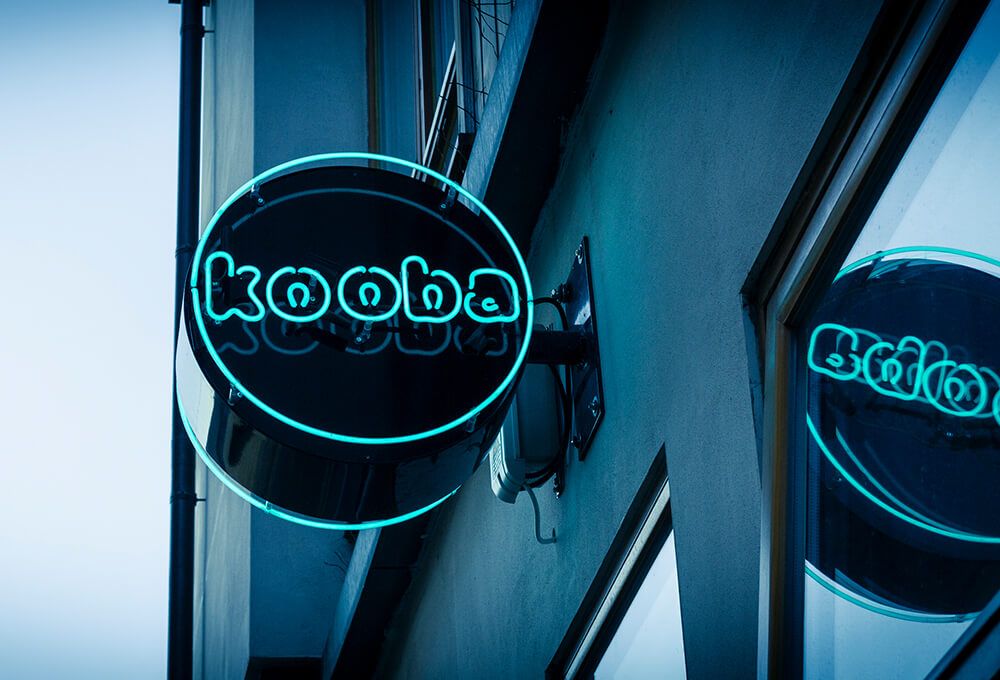Amazon’s recent troubles in New York are a valuable lesson in the importance of taking great care when expanding into new territories.
And whilst I suspect Jeff Bezos doesn’t read this blog (and that my advice isn’t particularly relevant to Amazonesque corporate behemoths anyway), I thought at least some of my readers might be interested in how Kooba expanded into Berlin, and the lessons we learned along the way.
It was 2016 when we first opened what was then our second office in Berlin. I won’t pretend we had everything planned in great detail, but we did have a strong idea of where we wanted to end up, and that vision served us well.
This Wednesday, three years later, I fly out to Berlin to meet clients old and new. I’ll catch up with the team on the ground and a broader ecosystem of contacts, partners and fellow agencies. I might even have a beer or two. In short, we now feel a part of Berlin in the same way as we are a part of Dublin.
We’re lucky to have got this far so successfully. We didn’t always have a plan, but looking back I think we did at least three things right, and I am a firm believer that if you get the really important decisions right pretty much everything else falls into place.
Let’s have a look at those lessons in some sort of chronological order.
Lesson 1: choose your location carefully
The ‘obvious’ choice for a Dublin digital agency setting up a second European office might be Cork, Belfast or London. But we felt that none of those choices were quite right for us. We wanted to make a bold and ambitious statement about the international basis of both our business and our design influences. Advantage Berlin.
Whilst we had a number of native German speakers on the team already (which of course also influenced our decision), Berlin is also a relatively ‘open’, international city in which English is - for better or worse - rapidly becoming the lingua franca for business.
In addition, we felt the city had a start-up and design culture that would make us at home, and in which we could find a place. And on a couple of exploratory trips that impression was confirmed.
So most importantly: choose the right location. Take the time to think carefully and don’t (necessarily) follow the herd. The answer for you might not be “Berlin”, but for us it most definitely was.
Lesson 2: commit
When you’ve made your decision, commit wholeheartedly to making it work. If you aren’t truly engaged or see a second space as a side-project, likely as not you will fail.
Whilst any office should always see itself as part of a global team, I believe it is important to have one individual leading any specific office and taking real responsibility for its growth and success. To that end we made sure to establish the Berlin office with a senior member of the team who could really own the undertaking and feel responsible for growing local revenues. Without that leadership it can be easy for any office to become a second class citizen, which - as we’ll see below - isn’t helpful for anyone.
It’s also key to really focus on new business generation. Obviously any agency depends on it, but I think it is vital for any office to become self-sufficient as quickly as possible and become almost an independent business that shares knowledge rather than a satellite or spin off. That means getting out and about to meet-ups and doing as much outbound work as possible. Even if it only leads to a conversation, that’s one more contact and one more root in the ground.
Don’t forget the social side of things either. We work hard to encourage travel and work between both offices. In 2016 we held our Christmas party in Berlin. It helps to have an outpost in Europe’s coolest city!
Lesson 3: aim for equality
I know others will disagree, but I think it is vital to consider any new location as almost a business in itself. That means not thinking of it as either a sales office or a location for outsourcing work from HQ.
Of course in some circumstances that isn’t always possible, but for an agency like ours I think it is certainly the most desirable approach. We worked hard from the start to ensure that Berlin was not an outpost but an equal partner in the Kooba story.
Always look to source work locally and do work locally. Of course a huge amount of knowledge sharing between offices still happens (otherwise why be the same business at all?), but for the sake of developing a meaningful footprint aim to be as self-sufficient as possible,
Building out a broader team with a variety of skills also helps the office culture itself - in any location. Certainly within any sort of creative agency different perspectives help deliver better solutions to our clients, and if they are under the same roof so much the better.
That isn’t to say that work doesn’t bounce across locations: it absolutely does. One of the benefits of multiple offices is the ability to tap into skills that are more prevalent in one geography over another. But where possible, deliver as much diversity as you can in every location you have.
Best of luck in your journey towards global domination!









